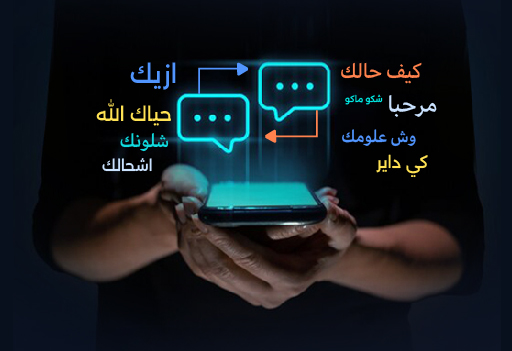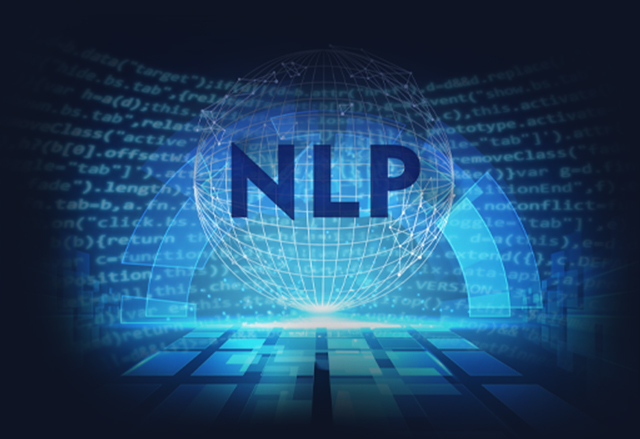Arabic Chatbots: Empowering Communication on a New Level

Imagine having an intelligent assistant who is available 24/7 to happily answer all your questions and engage in as many conversations as you’d like. That's precisely what chatbots provide! These virtual assistants, powered by cutting-edge Artificial Intelligence (AI) technology, have likely crossed your path while shopping online, seeking customer support, or simply enjoying a casual chat on social media.
But let's shift our focus to a particular kind of chatbot, the Arabic chatbot! With its rich diversity and beauty, the Arabic language encompasses various dialects spoken across the Middle East. Arabic chatbots have emerged as game-changers, effortlessly comprehending different dialects as well as the standard Arabic language.
The rise of Arabic chatbots holds immense significance in enhancing connections and communication. They have played a pivotal role in ensuring that Arabic speakers are heard, understood, and well-supported. From answering product inquiries to providing invaluable advice, these chatbots serve as friendly guides for all your Arabic language needs.
Moreover, the COVID-19 pandemic has further propelled the popularity of Arabic chatbots. With individuals staying at home and relying heavily on online services, chatbots have emerged as superheroes, enabling businesses to operate seamlessly and customers to receive assistance without stepping out of their homes.
In this article, we will discover further the power of Arabic chatbots and how they are revolutionizing the online communication scene. Let’s dive right in!
The Role of Chatbots in Automated Communication
Human-like chatbots are intelligent computer programs that engage in conversations with people, simulating real human interaction. Powered by AI technology, they comprehensively grasp our words and provide responses just like an actual person would.
Their role is to make our lives easier by providing quick correct answers, solving problems, and providing assistance with certain tasks. You can find them on websites, messaging platforms, and even in voice-activated devices like smart speakers, saving time and effort, making automated communication a breeze.
Features of Arabic Chatbots
Developers utilize sophisticated AI algorithms and pattern-matching techniques to effectively train Arabic chatbots to navigate the nuances of the Arabic language. It is akin to teaching them various dialects in order to communicate seamlessly with individuals regardless of their specific Arabic dialect, be it Egyptian, Saudi, Levantine, or even Franko Arabic.
Let's explore some of the other notable features that distinguish Arabic chatbots.
- Multilingual Mastery: Arabic chatbots need to be language wizards capable of understanding not only the standard Arabic language but also the myriad of dialects spoken by native Arabic speakers. A successful Arabic chatbot must master the intricacies of each dialect to provide relevant and accurate responses to users.
- Contextual Comprehension: Arabic is a language rich in context, and chatbots must be able to grasp the intended meaning behind the user’s input. They need to decipher ambiguous phrases, recognize idioms, and account for cultural references to ensure their responses align with user expectations.
- Localized Content: Effective Arabic chatbots take localization seriously. They should offer region-specific information, such as local events, holidays, and cultural norms, to establish a more personalized and relatable user experience.
- Human-like Conversations: Arabic chatbots strive to emulate human conversations to foster a sense of comfort and familiarity with users. Through natural language processing and generation (NLP/NLG), these chatbots aim to provide conversational experiences that mimic real-life dialogues.
Language is not just about words; it's also about cultural understanding. Arabic chatbots are usually trained to be culturally sensitive to connect with users on a deeper level. This means knowing local customs, traditions, and even humor.
When chatbots can grasp the cultural nuances, they become more relatable and trustworthy, fostering stronger connections with Arabic speakers.
Using Slang to Enrich User Interactions
Integrating slang is like adding a sprinkle of fun to the chatbot conversation. Just like how friends use slang to show closeness, chatbots can do the same! By using familiar slang words and phrases, chatbots sound more friendly and approachable. This human touch boosts user engagement, making the chatbot experience feel like a fun and personalized chat with a friend.
Here are examples of how slang can improve automated communication in Arabic chatbots:
- Greetings with a Twist: Instead of the standard "Hello" or "Hi," a chatbot could greet users with a friendly "Salam" or a casual "Ahlan!" to create a more approachable and informal tone.
- Expressing Appreciation: To show gratitude, the chatbot could use slang phrases like "Shukran" (Thank you) or "Merci" (Thanks), depending on the user's preference or regional background.
- Playful Responses: When users express happiness or excitement, the chatbot could respond with playful slang, such as "Yalla!" or “Aywa Keda!”.
Achieving this level of efficiency and performance requires a collaborative effort from developers, linguists, and cultural experts to create Arabic chatbots that are accurate, culturally aware, and capable of providing personalized, empathetic, and reliable conversational experiences.
Advantages of Arabic Chatbots in Various Sectors
So what exactly are the services and advantages that Arabic chatbots can provide in real-life situations and fields? Let’s find out!
Revolutionizing Customer Service in E-commerce
Arabic chatbots have transformed the customer service landscape in the e-commerce industry. They offer 24/7 support, enabling customers to get immediate assistance with their inquiries, orders, and product information.
By engaging users in their native language, They bridge the communication gap and create a more personalized shopping experience. Additionally, they can handle a large volume of customer interactions simultaneously, ensuring swift and efficient responses, which leads to increased customer satisfaction and loyalty.
Enhancing Patient Engagement and Support in Healthcare
In the healthcare sector, Arabic chatbots play a crucial role in enhancing patient engagement and support. They provide quick access to medical information, appointment scheduling, and reminders, enabling patients to stay informed and manage their health proactively. Moreover, these chatbots offer a friendly and compassionate interface, making patients feel more at ease when seeking medical advice or support in their native Arabic tongue.
Streamlining Processes and Providing Personalized Assistance in Finance
Arabic chatbots are transforming the finance industry by streamlining processes and offering personalized assistance. For instance, they can help customers with routine banking transactions, such as checking account balances, transferring funds, or paying bills.
By using AI-powered algorithms, they analyze customers' financial behaviours and preferences. This enables the chatbots to offer tailored financial advice and product recommendations to enhance the overall customer experience and strengthen the relationship between customers and financial institutions.
Empowering Fintech Innovations
In the fast-growing fintech sector, Arabic chatbots play a pivotal role in driving innovations. They enable users to access fintech services seamlessly, whether it's managing investments, conducting cryptocurrency transactions, or obtaining real-time market insights.
By integrating AI-powered chatbots, fintech companies can create user-friendly interfaces that simplify complex financial processes, making fintech accessible to all Arabic speakers and empowering users with greater financial control.
Elevating Customer Experience in Telecom
In the telecom industry, Arabic chatbots enhance the customer experience by providing instant support for billing inquiries, plan details, and troubleshooting common issues. These chatbots can also assist in data usage monitoring and provide personalized offers based on users' preferences.
By streamlining customer interactions, Arabic chatbots free up human agents to handle more complex queries, resulting in reduced wait times and improved customer satisfaction.
Enhancing Citizen Services in Government
In the government sector, Arabic chatbots are utilized to provide citizens with vital information, public service announcements, and guidance on governmental processes.
These chatbots act as virtual assistants, facilitating online interactions with government agencies and easing the burden on human support centers.
By offering multilingual capabilities, they cater to a diverse population, making government services more accessible and inclusive for all citizens.
User Experience and Satisfaction
User satisfaction plays a pivotal role in determining the effectiveness and impact of any technological innovation, including chatbots. When it comes to Arabic chatbots, the integration of slang introduces an intriguing dimension that can significantly influence user satisfaction.
Let’s find out how!
Informal vs Formal Tone
Arabic chatbots that use slang infuse conversations with an informal and approachable tone. This shift from traditional formal language to a more colloquial approach can resonate well with users, making interactions feel less robotic and more like friendly conversations. Users often appreciate this personal touch, as it mirrors the way they communicate with friends and family.
In contrast, chatbots without slang might come across as more distant and less relatable, potentially affecting user satisfaction.
Engagement and Relatability
Slangs often capture the latest trends, expressions, and cultural nuances, making conversations feel current and relevant. When users encounter slang terms that they commonly use or hear in their daily lives, it helps them establish an immediate connection. This heightened engagement can contribute to higher levels of user satisfaction, as users feel a stronger sense of connection and understanding.
Cultural Relevance
Slang is closely tied to culture, and its integration into chatbot interactions demonstrates cultural awareness. When users encounter slang that reflects their cultural context, it sends a message that the chatbot understands their language and way of life. This recognition of cultural identity can evoke feelings of inclusivity and appreciation, contributing to overall user satisfaction.
Query and Emotion Response in AI
When it comes to Arabic chatbots that incorporate slang, the way they understand and respond to users' queries and emotions takes on a fascinating dimension.
Let’s see how!
Nuanced Comprehension
Slang often adds layers of meaning beyond the literal interpretation of words. Arabic chatbots that are equipped to understand slang can decipher the nuances in users' queries, which enables them to provide contextually relevant answers that align with the intended meaning, even when slang expressions might seem ambiguous or unconventional.
Emotion Recognition
Slang is closely tied to emotions and attitudes. When users employ slang expressions to convey happiness, frustration, or excitement, chatbots that recognize these emotional cues can respond with empathy. By acknowledging users' emotions, chatbots with integrated slang create a more human-like interaction, fostering a sense of understanding and support that goes beyond mere text-based responses.
Conversational Flow
Slang is a natural part of everyday conversations, contributing to the flow and rhythm of communication. Chatbots that use slang can maintain a conversational flow that closely resembles human interactions. This seamless exchange of language creates a comfortable and familiar environment for users, enhancing their overall experience and satisfaction.
Engaging Interactions
Slang often introduces a playful and dynamic element to conversations. Chatbots that incorporate slang can capitalize on this aspect to keep users engaged. By responding in a manner that mirrors the users' casual and informal expressions, these chatbots create a dialogue system that feels spontaneous and interactive, making interactions more enjoyable.
Contextual Empathy
Users often turn to chatbots for assistance during various life situations, some of which may be emotionally charged. Arabic chatbots with slang integration have the potential to respond to users' emotional states with sensitivity. When users express frustration, excitement, or concern using slang, chatbots can adapt their responses accordingly, demonstrating empathy and understanding.
In the dynamic landscape of chatbot technologies, the integration of slang into Arabic chatbots exemplifies the power of language adaptation in shaping user interactions. This evolution not only enhances the usability of chatbots but also reflects a deeper understanding of cultural nuances and user needs.
As the journey continues, the future of chatbots lies in their ability to strike a harmonious balance between innovation and tradition, creating technology that speaks the language of its users and enriches their digital experiences.
Frequently Asked Questions (FAQs)
How do Arabic chatbots differ from chatbots in other languages?
Arabic chatbots differ due to complex language structure, script, and cultural nuances compared to chatbots in other languages.
How can businesses ensure that Arabic chatbots maintain cultural sensitivity?
Businesses can ensure cultural sensitivity in Arabic chatbots by involving native Arabic speakers in chatbot development, incorporating region-specific etiquette, and conducting continuous cultural awareness training for the chatbot's responses.
Why do multilingual chatbots matter?
Multilingual chatbots matter because they enhance global reach, provide personalized experiences in language variety, and foster better customer engagement and satisfaction.












